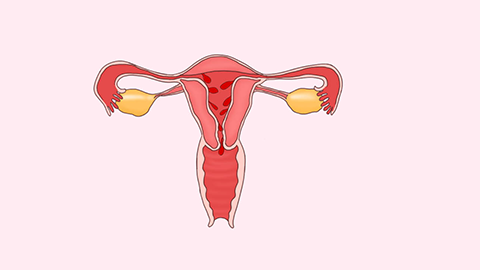Causes of Endometrial Displacement
Endometrial displacement refers to endometriosis. Generally, endometriosis may be caused by genetic factors, unhealthy lifestyle habits, retrograde menstruation, induced abortion surgery, cesarean section, and other factors. Management depends on the specific circumstances.

1. Genetic factors: Genetic factors may affect individual immune system function, making some women more susceptible to implantation and growth of endometrial cells. Women with a family history should be vigilant and undergo regular gynecological examinations.
2. Unhealthy lifestyle habits: Unhealthy lifestyle habits, such as high-fat diets, lack of exercise, and excessive intake of caffeine or alcohol, may cause elevated estrogen levels. It is recommended to improve lifestyle habits and maintain a balanced diet and moderate exercise, which can help regulate hormone levels in the body and reduce the risk of developing the condition.
3. Retrograde menstruation: During menstruation, some menstrual blood flows backward through the fallopian tubes into the abdominal cavity. Endometrial cells contained in the menstrual blood can implant and grow within the abdominal cavity, leading to endometriosis. It is recommended to use medications such as dydrogesterone tablets, medroxyprogesterone acetate tablets, or goserelin acetate microspheres for injection under a doctor's guidance.
4. Induced abortion surgery: During the surgical procedure, due to the use of vacuum aspiration, pressure imbalance may cause endometrial tissue to be drawn into the pelvic or abdominal cavity, thus triggering endometriosis. It is recommended to use medications such as danazol capsules, triptolide capsules, or norethisterone tablets under a doctor's guidance.
5. Cesarean section: During cesarean delivery, endometrial tissue may be carried along with amniotic fluid and left at the surgical incision site or elsewhere in the pelvic or abdominal cavity, where the endometrium may grow and cause endometriosis. It is recommended to use medications such as naproxen injection, medroxyprogesterone acetate tablets, or megestrol acetate dispersible tablets under a doctor's guidance.
It is recommended to maintain a healthy lifestyle, regular sleep patterns, moderate exercise, and stress reduction techniques to help maintain hormonal balance and prevent endometriosis.







